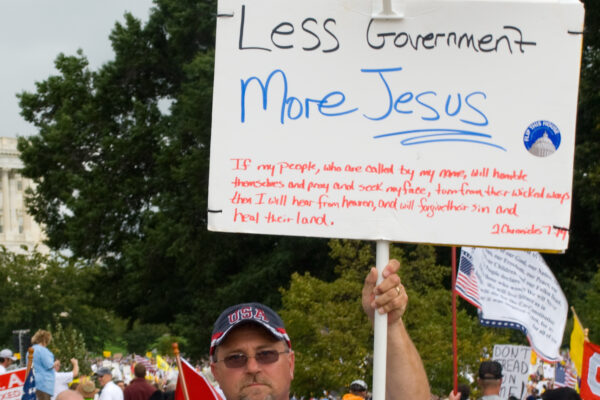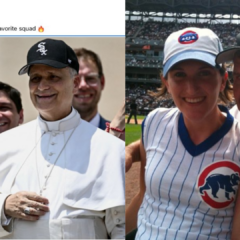This post originally appeared on Trans/Missions, the USC Knight Chair in Media and Religion blog.
What is particularly striking in the aftermath of Tuesday’s historic election is that there is no consistent religion storyline. Observers have alternately argued that there is no values or faith story in the 2010 election, that the Tea Party is really a cover for the pro-big business “Christian Nation” promoters, or that the stunning win by Republicans is due to the “End Times” worldview of its right-wing Christian base.
While these angles on religion in the 2010 election are true as far as they go, they mask other developments and raise important questions, not only for why this election turned out the way it did, but for what may happen in 2012.
A survey report published before the election, from the Public Religion Research Institute, shows that almost one-half of those who consider themselves part of the Tea Party movement also consider themselves part of the religious right or conservative Christian movement, and that they are much more likely to be social conservatives rather than libertarians on social issues.
Early efforts to tease out the patterns of this election’s vote among religious people seem to confirm PRRI’s findings; the percentage of Protestants and Catholics who voted Republican increased by several percentage points in this election, as compared to 2008. In general, the more a person goes to church, the more likely they will be to vote Republican. But at the same time, most people say that their faith doesn’t shape their positions on such important issues as immigration, the environment, or poverty.
This raises a pair of important questions: What exactly were people voting for? What role does religion play in how they cast their ballots? Most commentators suggest that the shaky economy and the increasing influence of the government in society drove the election toward the Republicans. Formulated this way, values were trumped by economic concerns, regardless how important “values” are to voters.
But if the membership of the Tea Party is largely made up of Republican values-voters, reporters should be asking questions about how values, economics and religion are related. Does economics really trump values, or are values really about “me” and my beliefs as opposed to “them” and their needs? Was the apparent economic vote of the 2010 midterm election really a proxy for underlying values concerns, or even prejudices, whether racial, religious or class-oriented? Reporters should keep an eye out for how these shifting concerns and political alliances play out as the economy recovers and we head toward the 2012 presidential election.
Photo Credit: Will Kuhns/WikiCommons
Richard Flory is the executive director of the USC Center for Religion and Civic Culture.







